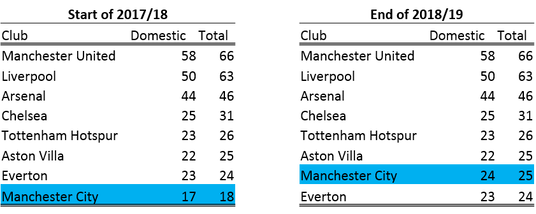Some time ago I received comments on a paper I had co-authored examining aspects of clubs in the English Premier League. One of the reviewers found fault with our definition of club size which was essential for executing the empirics in the paper. It was a reasonable gripe but one that was hard to handle because we entered into the realm of subjectivity.
What is a "big club"? I have heard countless arguments as to who is "bigger"; Liverpool or Man United. Spurs or Arsenal. Celtic or Rangers. Naturally, supporters of Manchester United will point to 20 league titles and a stadium that holds more fans than any in the Premier League. Liverpool fans counter this with six European Cups, twice as many as their great rivals. Arsenal, Spurs, Celtic, Rangers and countless other club supporters' will have similar circular debates.
The answer of course is that there is no answer. While definitions and language are important in economics, finding a definition that can capture this properly has eluded most - me included - to date. I guess in the modern game one has to include three key variables; present status of the club e.g. Premier League, Champions League; past successes of the club e.g. trophies won; and revenue generation e.g. Deloitte Money League.
If anyone is any doubt as to the legacy that Pep Guardiola is leaving at Manchester City, one need only to consider the tables below.
Chelsea are next on the horizon with 31. I wouldn't bet against this being reached in the not too distance future, and while Arsenal are a bigger ask to catch, City will be well established as the 4th most successful club (in terms of trophies won) by the time they set out to catch the Gunners.
The "noisy neighbours" have become a "big" club and look set to go in only one direction.

 RSS Feed
RSS Feed